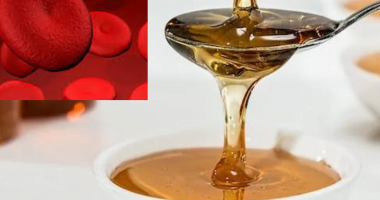Jojoba oil is a gentle choice for both skin and hair when applied directly as it has amazing benefits. The antioxidants contained in this natural oil can promote healthy skin and hair when used properly.
Jojoba oil is a liquid wax, cold pressed and extracted from the seeds of the Simmondsia chinensis (jojoba) plant. The resulting oily liquid is yellow in color and rich in waxy esters.
A mature Jojoba nut is a dark brown and hard oval that contains the liquid wax or the “oil. that is very beneficial for the skin and natural hair”.
One of the amazing things about jojoba oil is that it’s generally safe for most people to use, even babies. Regarding skin, Jojoba oil has a unique composition that mimics the natural oils our skin produces, so it absorbs quickly without leaving that greasy, heavy feeling. It’s hypoallergenic, so it’s less likely to cause any irritation or reactions.
This oil is rich in nourishing vitamins like A and E, as well as all sorts of other beneficial compounds like fatty acids, sterols, and flavonoids which makes it super soothing and reparative for the skin.
Jojoba oil is non-comedogenic (doesn’t clog pores) means it’s suitable for all different skin types – normal, dry, oily, and even sensitive.
Note that you can use jojoba oil as a carrier oil. Jojoba oil is a popular choice for carrier oils due to its unique properties that make it an excellent base for blending with essential oils. Read on to know more about the benefits of Jojoba oil for skin and natural hair. You may also like read : Is coconut oil good for infant eczema? Other natural remedies
Jojoba Oil Benefits for Skin

Hydrates Dry Skin By Replenishing Natural oils.
One of the potential benefits of jojoba oil is its ability to likely deeply hydrate dry, dehydrated skin. Dry skin is a very prevalent skin ailment caused by cold weather and long exposure to sunshine. Using jojoba oil daily for four weeks may significantly improve skin hydration and reduce the appearance of fine lines and wrinkles.
The reason jojoba oil is so effective at hydrating the skin is twofold. First, its chemical structure allows it to penetrate deeply into the skin’s layers, delivering essential moisture where it’s needed most. Second, jojoba oil forms a protective barrier on the skin’s surface, locking in hydration and preventing water loss.
Whether you’re dealing with dryness, or breakouts, or just want to give your skin a healthy glow, jojoba oil is definitely worth trying out.
Rich In Anti-Inflammatory Properties
One of the most noted benefits of jojoba oil is its anti-inflammatory properties. Jojoba oil contains both omega-6 and omega-9 fatty acids. Because of this, it is believed that jojoba oil can stop inflammation before it can start. This is especially true when used topically on the skin. When applied directly to the skin, these fatty acids are easily absorbed through the skin’s oil-producing glands, helping to reduce inflammation, skin sensitivity, redness, and roughness. Since inflammation can also disrupt healthy collagen levels, reduced inflammation helps to promote good skin tone, elasticity, and texture. Because of its immense benefits, jojoba oil is often used in makeup care products and said to help calm mild acne or sensitive skin issues. Also read 26 Foods Rich in Anti-Inflammatory Properties
Moisturizes Skin Without Clogging Pores
Jojoba oil’s lightweight, non-greasy texture makes it perfect for moisturizing without clogging pores. According to research, Jojoba oil may improve skin hydration without increasing sebum production, making it suitable for acne-prone skin.
Balances Sebum Production
By mimicking the skin’s natural oils, jojoba oil helps regulate sebum production, reducing the appearance of pores and giving skin a more even tone. This balancing effect is especially beneficial for those with oily skin, as it can help reduce excess oil production.
Reduces Appearance of Fine Lines and Wrinkles
Jojoba oil is recognized for its ability to reduce the appearance of fine lines and wrinkles by providing essential moisture and nourishment to the skin, thereby enhancing its texture and elasticity. This natural oil deeply hydrates and moisturizes the skin, penetrating deeply to provide long-lasting hydration without leaving a greasy residue. Additionally, jojoba oil offers antioxidant protection due to its rich content of vitamins and minerals, such as vitamin A, B, and E, omega-3 fatty acids, copper, zinc, and flavonoids, which collectively work to shield the skin from oxidative stress. By protecting the skin’s barrier and promoting collagen production, jojoba oil helps minimize the signs of aging, including fine lines and wrinkles, making it a valuable addition to skincare routines seeking to combat premature aging and maintain youthful skin vitality.
Fades Dark Spots and Hyperpigmentation
The antioxidants in jojoba oil help neutralize free radicals, which can cause dark spots and hyperpigmentation. Regular use of jojoba oil can lead to a more even skin tone and a reduction in the appearance of dark spots.
Soothes Inflammation and Redness
Jojoba oil’s anti-inflammatory properties make it an excellent remedy for soothing red, irritated skin. One study found that jojoba oil reduced inflammation and improved skin health in patients with skin conditions.
Helps Heal Minor Cuts, Scrapes, and Burns
Jojoba oil’s antibacterial and anti-inflammatory properties make it an effective treatment for minor wounds. Apply a few drops of jojoba oil to the affected area to promote healing and reduce the risk of infection.
Removes Makeup and Impurities from Pores
Use jojoba oil as a gentle makeup remover or cleanser to remove dirt, impurities, and excess oil from pores. Its lightweight texture won’t clog pores, making it suitable for daily use.
Improves Skin Elasticity and Firmness
Jojoba oil’s antioxidants and fatty acids may help improve skin elasticity, giving skin a more youthful, firm appearance.
Provides Antioxidant Protection Against Free Radicals
Jojoba oil’s high antioxidant content helps protect skin from environmental stressors and free radicals, which can cause premature aging and skin damage.
Suitable for All Skin Types, Including Sensitive Skin
Jojoba oil’s gentle, non-irritating nature makes it suitable for even the most sensitive skin types. I’ve seen patients with rosacea, eczema, and other sensitive skin conditions benefit from using jojoba oil.
Helps Control Acne Breakouts and Blemishes
Jojoba oil’s antibacterial properties help control acne-causing bacteria, reducing the appearance of blemishes and breakouts. Its anti-inflammatory properties also soothe red, inflamed skin.
Softens and Smooths Rough, Dry Patches
Jojoba oil’s moisturizing properties make it an excellent treatment for dry, rough skin patches. Apply a few drops to the affected area to lock in moisture and soften skin.
Promotes Healthy Skin Cell Regeneration
Jojoba oil’s antioxidants and fatty acids help promote healthy skin cell regeneration, giving skin a more radiant, youthful appearance.
Reduces the Appearance of Scars and Stretch Marks
Jojoba oil’s antioxidants and fatty acids help improve skin texture and reduce the appearance of scars and stretch marks. Massage a few drops into the affected area to promote collagen production and skin regeneration.
Provides a Natural Glow and Radiance to the Complexion
Jojoba oil’s moisturizing and antioxidant properties give skin a natural, healthy glow. Use it as a face oil or serum to add an extra layer of hydration and protection to your skincare routine.
Jojoba Oil Benefits for Natural Hair
Here are 7 benefits of Jojoba Oil for natural hair:

Moisturizes Hair
Jojoba oil is an excellent moisturizing element for hair, containing behenic and oleic acids that strengthen hair follicle roots, maintain scalp oil balance, and treat dryness and flakiness.
Promotes Hair Growth & Thickness
Jojoba oil is effective in promoting hair thickness and health by deeply penetrating the hair shaft to provide optimum hydration, keeping hair strong and healthy. Its natural deep conditioning properties also save hair from dryness and frizziness. Vitamin E in jojoba oil exhibits cell regeneration properties, which can help stimulate the supply of oxygen and nutrients to the hair follicle, promoting healthy hair growth.
Repairs Damage From Heat & Styling Tools
Jojoba oil creates a protective shield on hair, protecting it from damage caused by heating tools and chemical treatments. It helps prevent breakage and manage split ends, providing a barrier against heat-induced damage.
Maintains Scalp’s Natural Balance
Jojoba oil helps balance out imbalanced scalp oils and pH levels, which are known to promote the growth of fungus causing dandruff. It is also beneficial in curing psoriasis, an inflammatory condition affecting the scalp and other parts of the body
Treats Dry Natural Hair
Jojoba oil seals in moisture, conditions, and adds shine to both hair and scalp. It acts as a protective barrier, preventing dryness and maintaining hair health. It also helps in treating conditions like eczema and psoriasis on the scalp.
Encourages Natural Hair Growth
The fatty acids and natural alcohol in Jojoba oil nourish the hair, stimulate hair growth, and promote healthy hair regrowth. Its properties are similar to the natural oils on the scalp, ensuring healthy hair growth and maintenance.
Helps with Scalp Infections
Jojoba oil’s antioxidant properties combat bacterial and fungal infections on the scalp, aiding in treating dry scalp, itching, and dandruff. Adding a few drops of Jojoba oil to hair products can help in maintaining a healthy scalp and preventing scalp issues.
Don’t Miss: 10 Common Habits That Destroy Your Hairline
How to Use Jojoba Oil for Best Results

Cleanse and Remove Makeup with Jojoba Oil: Use jojoba oil as a gentle makeup remover or cleanser to remove dirt, impurities, and excess oil from pores. Massage a few drops onto your face, then wipe clean with a damp cloth.
Use Jojoba Oil as a Moisturizer, Serum, or Face Oil: Apply a few drops of jojoba oil to your face and neck after cleansing, while skin is still damp. This helps lock in moisture and maximize absorption.
Apply Jojoba Oil to Damp Skin for Maximum Absorption: Applying Jojoba oil to damp skin allows it to penetrate deeper into the skin, providing maximum hydration and benefits.
Incorporate Jojoba Oil into a Weekly Face Mask or Scrub: Mix a few drops of jojoba oil with your favorite face mask or scrub to add an extra layer of hydration and nourishment to your skin.
When to Use Jojoba Oil

Morning and Evening: Use jojoba oil as part of your morning and evening skincare routine to provide continuous hydration and protection.
After Cleansing and Before Moisturizing: Apply jojoba oil after cleansing and before moisturizing to help lock in moisture and prepare skin for further products.
As a Spot Treatment for Blemishes or Dry Patches: Use jojoba oil as a spot treatment for blemishes, dry patches, or areas of inflammation. Its antibacterial and anti-inflammatory properties make it an effective remedy for soothing and healing skin.
As a Hair Treatment to Nourish and Condition: Jojoba oil’s moisturizing properties make it an excellent hair treatment. Apply a few drops to the ends of your hair to nourish and condition, leaving hair soft and silky.
How to Mix Jojoba Oil With Essential Oils

General Massage and Face Recipes: Combine 20 to 25 drops of essential oil (or a blend of essential oils) with 100ml (approximately 6 3/4 Tablespoons) of jojoba oil.
Massage of Specific Body Areas: Mix 35 drops of essential oil (or a blend) with 100ml (approximately 6 3/4 Tablespoons) of jojoba oil.
Bath: Combine 20 drops of essential oil (or a blend) with 60ml (approximately 4 Tablespoons) of jojoba oil.
Hair: Blend 50 drops of essential oil (or a blend) with 70ml (approximately 4 3/4 Tablespoons) of jojoba oil.
Diluting essential oils in a carrier oil like jojoba is key, as they can be very potent and potentially irritating if used undiluted. Essential oils, such as citrus oils, can have a toxic or irritating effect when exposed to sunlight or UV light, so use them cautiously.
When creating your own blends, consider the specific benefits you’re looking for (e.g., relaxation, skin health, hair care) and choose essential oils accordingly. Start with a small amount of essential oil and adjust to your liking, as essential oils can be very strong.
For example, you could try combining jojoba oil with lavender and chamomile essential oils for a relaxing bath, or with peppermint oil for a refreshing massage oil. The best way to store your blends is in dark, closed glass bottles to protect the oils from light and prolong their shelf life.
Do not forget to label your bottles with the essential oil(s) used, the date, and the purpose of the blend, and follow proper safety precautions when using essential oils.
FAQs
Is Jojoba Oil Non-Comedogenic? Yes, jojoba oil is non-comedogenic, meaning it won’t clog pores. Its lightweight texture and composition make it suitable for acne-prone skin.
Can Jojoba Oil Be Used on Sensitive Skin? Yes, jojoba oil is gentle and non-irritating, making it suitable for even the most sensitive skin types.
How Long Does It Take to See Results from Using Jojoba Oil? You may start to see results from using jojoba oil within a few days to a week, depending on your skin type and concerns. Consistency is key, so be patient and make jojoba oil a regular part of your skincare routine.
Can Jojoba Oil Be Used on the Body as Well as the Face? Yes, jojoba oil can be used on the body to moisturize and nourish skin. It’s especially beneficial for dry, rough patches like elbows and heels.
Is Jojoba Oil Safe to Use During Pregnancy? Yes, jojoba oil is safe to use during pregnancy. However, as with any new skincare product, it’s always a good idea to consult with your healthcare provider before making any changes to your routine.
What is the disadvantage of jojoba oil for skin? The downside of jojoba oil for skin is that it can lead to some adverse reactions in individuals, which then cause hives, itching, and skin rashes. Generally, jojoba oil is safe for most people; it is considered hypoallergenic. However, there are rare cases of allergic reactions that can trigger skin irritation, especially for people who have a history of skin reactions.
Can we apply raw jojoba oil directly on the face? Raw jojoba oil, directly used on the face, is mostly safe for most people. Jojoba oil is non-comedogenic, and so it is unlikely to cause pore blockages, making it suitable for application directly to the skin. In any case, like any other skincare product, jojoba oil should first be tested for a patch test before using it on the whole face to ensure that it does not cause an allergic reaction or sensitivity. If there are no negative reactions, you can use raw jojoba oil on your face without any doubts, as it is an important part of the skincare regimen to experience the many benefits for the skin.
References
A. Gad, H., Roberts, A., H. Hamzi, S., A. Gad, H., Touiss, I., E. Altyar, A., A. Kensara, O., & L. Ashour, M. (2021). Jojoba Oil: An Updated Comprehensive Review on Chemistry, Pharmaceutical Uses, and Toxicity. ncbi.nlm.nih.gov
Goyal, A., Sharma, A., Kaur, J., Kumari, S., Garg, M., K. Sindhu, R., Habibur Rahman, M., Furqan Akhtar, M., Tagde, P., Najda, A., Banach-Albińska, B., Masternak, K., S. Alanazi, I., R. H. Mohamed, H., F. El-kott, A., Shah, M., O. Germoush, M., S. Al-malky, H., H. Abukhuwayjah, S., E. Altyar, A., G. Bungau, S., & M. Abdel-Daim, M. (2022). Bioactive-Based Cosmeceuticals: An Update on Emerging Trends. ncbi.nlm.nih.gov
V Gruber, J., Terpak, N., Massard, S., Schwartz, A., & Bojanowski, K. (2023). Passive Enhancement of Retinol Skin Penetration by Jojoba Oil Measured Using the Skin Parallel Artificial Membrane Permeation Assay (Skin-PAMPA): A Pilot Study. ncbi.nlm.nih.gov









